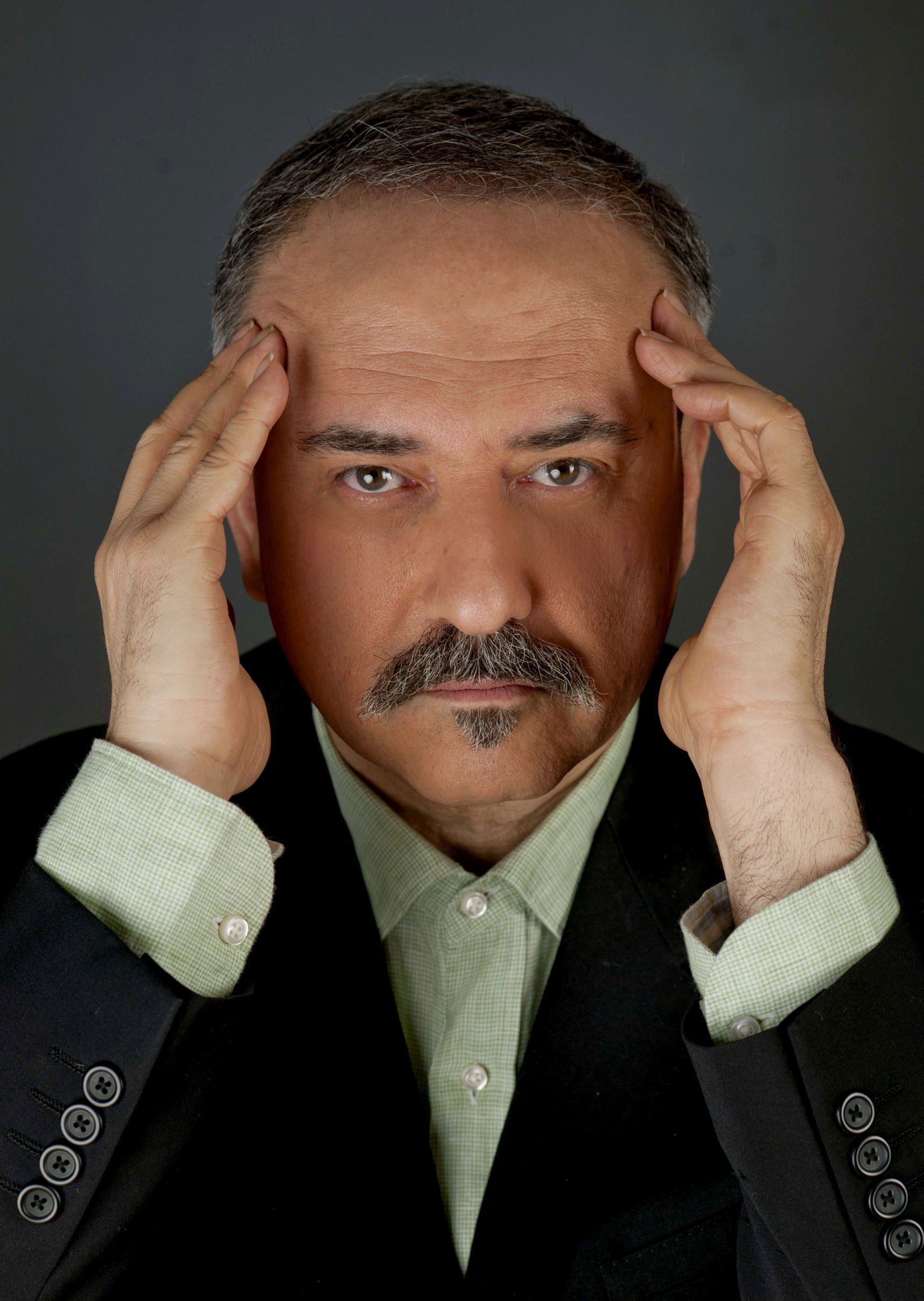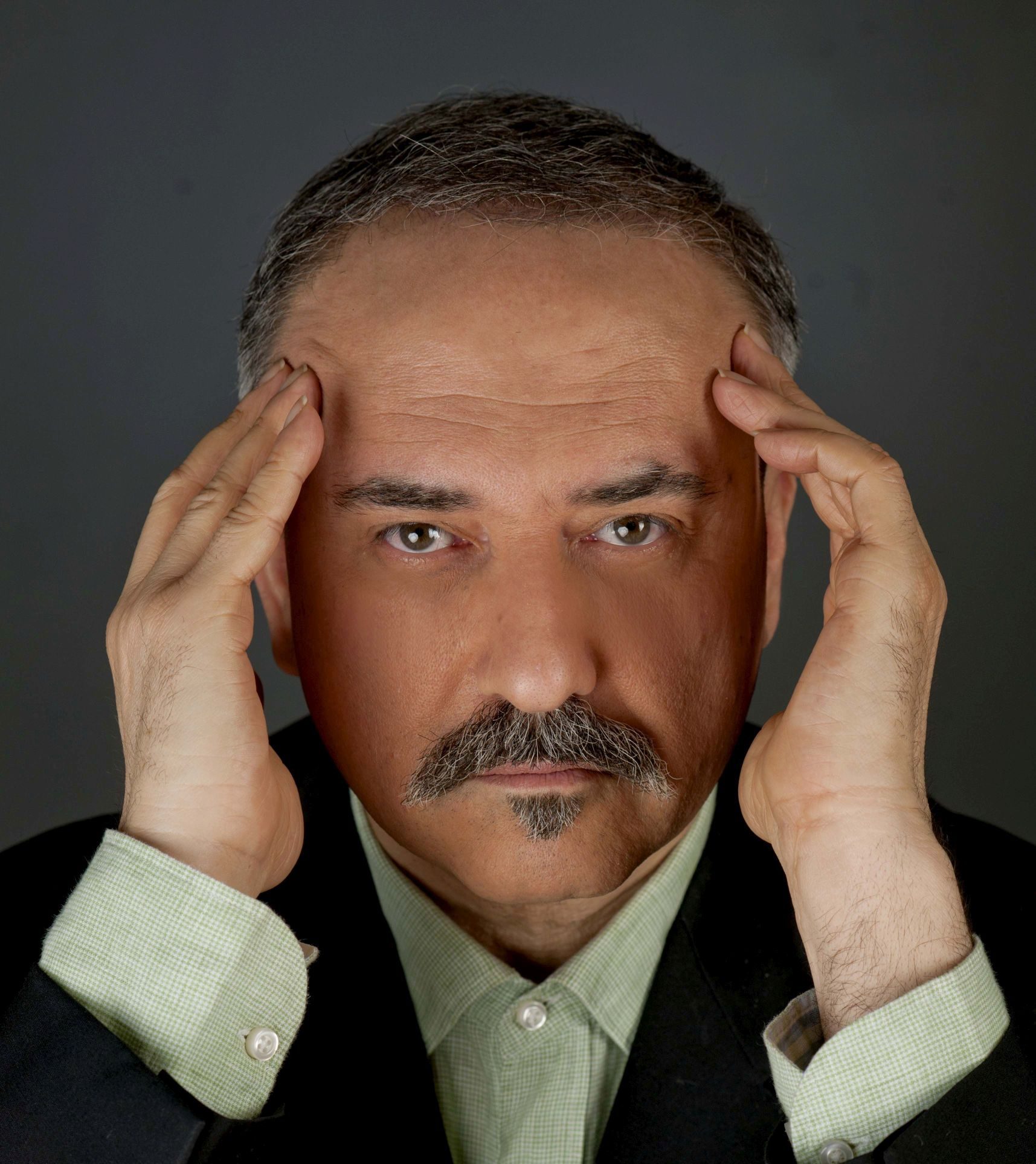Turkey, Literature, 2018
Mungan
Murathan

Murathan Mungan was born in 1955 in Istanbul, but grew up in Mardin, a city in the Southeastern Anatolian region of Turkey. Life there is characterized by a peaceful coexistence of Muslims, Orthodox Christians, Aramaeans, and Yazidis. But in the region battles have also been waged against the Kurds for more than three decades. Mungan’s family has—on his father’s side—Kurdish-Arab roots. As a child, he was therefore forbidden to speak the Kurdish language. So from the very beginning he grew up within a cultural field fraught with tensions.
After successfully completing his theater studies at the University of Ankara, he worked at the state theaters in Ankara and Istanbul. In 1981, one of his plays was presented on stage for the first time. Even in these early plays Mungan drew from his wealth of family experiences: the eleven-hour premiere of his Mezopotamya Uclemesi (The Mesopotamia Trilogy) at the Antalya state theater in 1994 is a prime example—not least for its combining of fairy tales and legends, myths and rituals, and its playing with space and time. Even then his blending of Eastern and Western narrative styles was on display, an aspect characteristic of Mungan’s body of work through today: he has a passion for mixing elements of Western pop culture with Eastern mythical archetypes. The outcome is a seemingly hybrid style of writing, which feels both postmodern and Middle Eastern, but which always strives to critically examine today’s current topics: gender issues are just as relevant as political Islam. Meanwhile, his body of work has expanded to over thirty novels, collections of poetry, and short stories. In Turkey, Murathan Mungan is, first and foremost, considered a poet. And he is one of the best-known contemporary authors there. His books are revered and appreciated above all by young and liberal readers. Mungan travels the country giving seasoned, theatrically staged readings like a pop star; well-known singers turn his poems into songs. These make the rounds on social media as text messages prior to their publication in book form; his fans regularly fill up the guestbook on his website. But Mungan puts his popularity as a public persona to use: he advocates for the rights of the Kurds and against homosexual discrimination. He calls himself a “self-confessed gay man”—because, as Mungan states in an interview, in a country like Turkey being “gay is a way of life” (in qantara.de, March 18, 2008). But even if he is a popular author, he is by no means a popular author for his writing: Mungan loves challenging metaphors as much as experimenting with literary forms. The short-story collection Palast des Ostens (published in German in 2006), for example, stands out for its structure similar to a chamber play. At the same time, Mungan’s narratives—set in the steppes and mountainous regions of the Near East and revolving around the theme of love—reflect on and illuminate contemporary discourses on power, gender, and the body. The impacts of fundamentalist thinking are also the focus of his novel Çador (first published in 2004; in German in 2008). Here, Mungan shows what happens when Islam is politicized and all secular thinking is expelled. What begins as a seemingly realistic story of a soldier returning from war ends up as a bleak vision of a political end-time: the land where Mungan’s protagonist finds himself is in the hands of Islamist soldiers, the women are forced to wear veils—nothing is the way it was before. Mungan cleverly draws a connection between the command that women cover themselves and the prohibition of images also imposed by the soldiers of God. In the final analysis, both represent a society in which reality is veiled and thus negated—and where what is not open and unveiled must remain an object of public life. At the same time, the novel also addresses additional considerations of the overall social consequences of such a political order: mandated monotony and a significant loss of reality. The short-story collection Städte aus Frauen (published in German in 2010) also revolves around the theme of women in Islam. Mungan creates psychologically highly astute protagonists who are freed from the seemingly typical conflicts defining the lives of Turkish women from our Western point of view: we encounter them in Turkey’s major cities, they determine the lives they live, are still unmarried or already divorced, or even widowed. Often they pay for their freedom with loneliness; happiness is associated with a quiet pain. As in Çador —as Martin Zähringer points out in his book review—Murathan Mungan also expands the subject of gender roles into a general tableau: “Many of his heroines, through their origins or their actions, touch on Turkey’s taboo themes: the persecution of Armenians, the oppression of the Kurds, and the experiences of the Turkish left with torture and exclusion.” (in NZZ, August 18, 2010). Like his characters, Murathan Mungan also breaks many taboos. It is not surprising then that in Turkey he is such an exceptional figure, considered just as incorruptible as he is controversial.
Text: Claudia Kramatschek
Translation: Erik Smith
Palast des Ostens
Short-story collection. Translated from the Turkish by Birgit Linde and Alex Bischof.
Unionsverlag, Zurich 2006
Tschador
Novel. Translated from the Turkish by Gerhard Meier.
Blumenbar Verlag, Munich 2008.
Städte aus Frauen
Novel. Translated from the Turkish by Gerhard Meier.
Blumenbar Verlag, Munich 2010.


